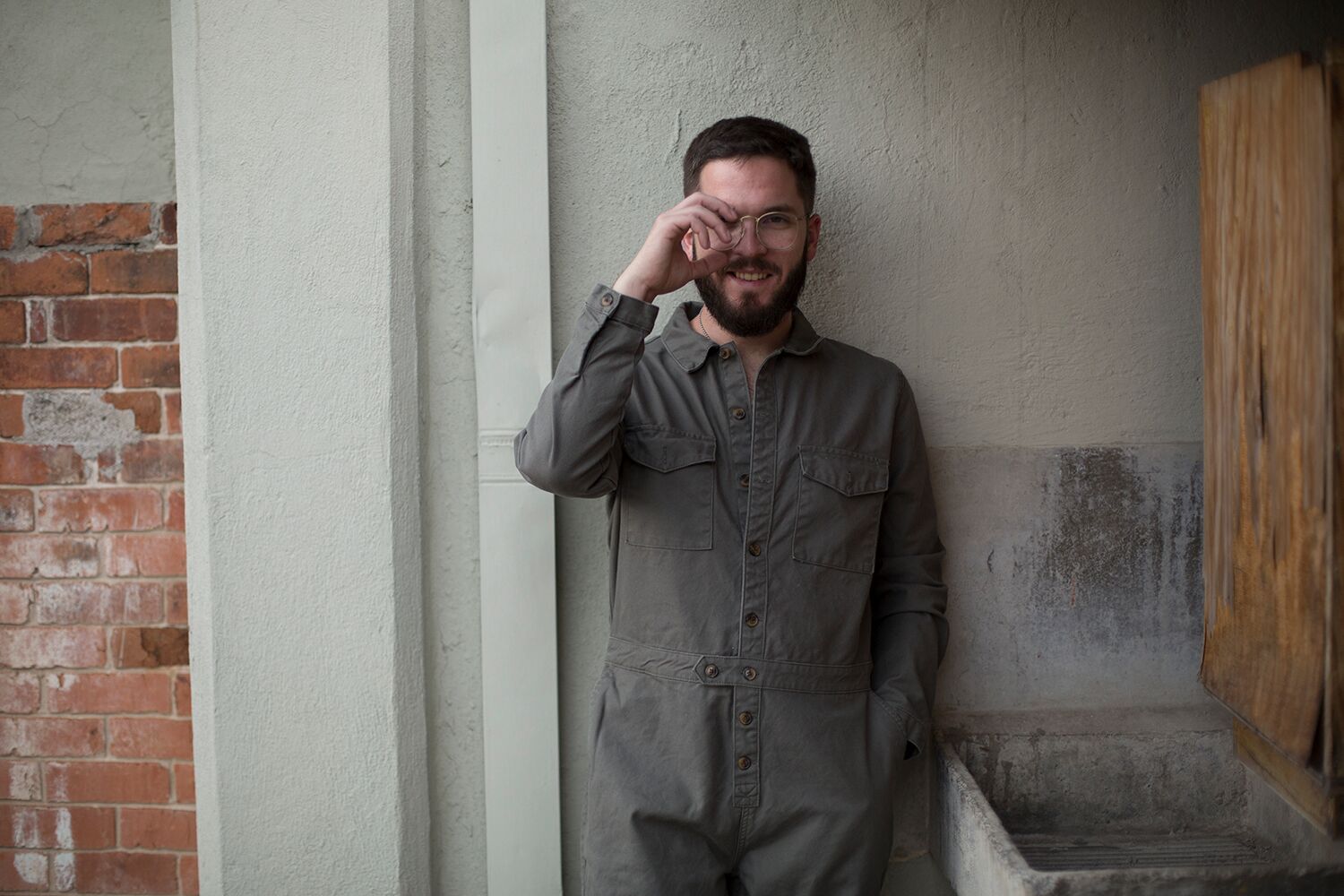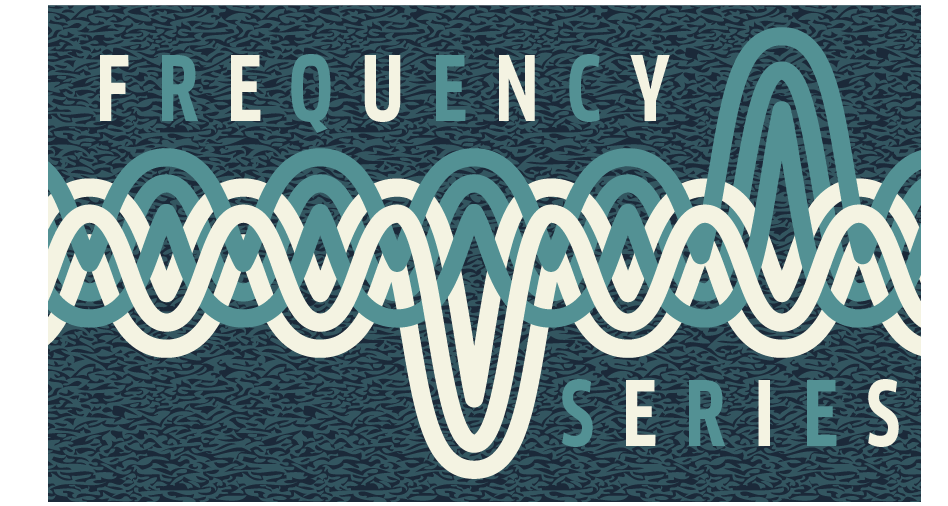Jacob Wick is back even though he’s been here all along
Jacob Wick (photo: Gudinni Cortina)
Sometimes I need to remind myself that recordings shouldn't be the measure of what a musician is doing, whether stylistically or in terms of activity. If I thought that way all of the time I would probably assume that the trumpeter Jacob Wick has largely been inactive, although I know that's certainly not the case. In fact, the Chicago native who's been based in Mexico City since 2014 has been seriously occupied with a multivalent art practice including workshops, residencies, installations, and art criticism, to say nothing of disparate musical performances. A couple of years ago I caught a trio performance by Wick with Aaron Zarzutzki and Nick Hoffman at Slate Arts in Chicago that vividly reminded me what a superior improviser and sound-maker he is, transcending limited materials to craft a collaborative set that was exhilarating, confusing, beautifully paced, and deeply satisfying. This year a slew of recordings featuring Wick have only reinforced the impression that concert left upon me. Wick is concerned with rigorous exploration and experimentation, not documentation. But I'm glad some of his sonic efforts are getting out there in the world for those who don't get to experience his art in person.
The trumpeter long ago proved his versatility and curiosity, dealing with freebop, free improv, sound art, and noise, and all aspects of those pathways can be discerned in varying degrees on theses new albums. Still, nothing rings as powerful or as personal as the recent solo recording Feel (Thin Wrist), an expansive evocation of his mastery of extended technique and spirited deconstruction of his instrument. A pair of sidelong pieces dispatch just about any traditional trumpet-like sound in favor of abundantly striated texture, muscular circular breathing, and ever-shifting detail. "For Ted," which you can hear below, is the more visceral, confrontational, and abrasive of the works, an unrelenting stream of spittle-flecked columns of air that sounds like a wounded but unbowed machine--its mechanical disruptions conveying a human-like vulnerability despite the bracing, trebly harshness. Once the ears adjust to the scorched earth timbre there's no missing the endless variations; Wick's churn shifts in density and depth, motion, intensity, and detail. Beyond the way his streams of air shoot through the chambers of his instrument, his lip control injects ghostly pitch shifts, flatulent whinnies, and an almost vocalic narrative. There's an impressive focus of concentration--Wick never veers from a limited set of material, eschewing outward commentary in favor of a darkening sound storm that's crushing, devastating. He never stops until he stops with a sudden pucker. "For Matt" is comparatively gentle, with a driving chug of sibilant breath that almost suggests a pulsing, tentative squeeze of a rubber duck mapped to the locomotion of a train engine. Within that template Wick raises the temperature, pushing up the volume, add creating a kind of dual pulse with a heftier layer of sound above the thin squeak that grows increasingly percussive as the piece plows forward. Intrusions of sudden white noise bursts, spastic valve clacks, and lip-blubber bombs puncture the din without the pulsation ever wavering.
I first heard Wick back in 2009 on the sole recording by the Trans-Atlantic trio White Rocket--with pianist Greg Felton and drummer Sean Carpio--a combo that offered a sleek, searching take on post-bop where the trumpeter's jazz bona fides were made clear. While it hasn't been his primary activity in many years, he still engages with jazz today. Earlier this year he released Combinatory Pleasures (Astral Spirits), a terrific duo recording with Chicago drummer Phil Sudderberg (who's been earning attention for his membership in Ken Vandermark's quintet Marker) that straddles his penchant for extended technique and his more lyric, clean-toned horn abilities (Wick even obliquely quotes Miles Davis’ “Four”) . The session is fully improvised, but Wick offers plenty of melody, often playing exquisitely tuneful lines over the spare, elliptical swing feel of the drummer--which you can experience on the thoughtful "Five Hundred" below. The pair push and pull against one another like old pals, but they're most certainly working toward a common goal, with Sudderberg perpetually shifting gears and tone to give his partner plenty of movement, atmosphere, and melody to improvise upon. The performances are delightfully direct, concise, and communicative, nicely embodying the collaborative joy suggested by the tape's title. On the fitful "To Meet You in Your Finery" the pair trips through several discrete feels, with Wick toggling between blubbery extended technique and clarion bright lines, while his counterpart goes seamlessly in and out of time. I particularly enjoy the pauses that punctuate a piece like "Beetles," where the duo seems to gather itself before launching into a fresh sally, but those moments of repose feel less about recalibration than scooping up momentum, like winding up a rubber band airplane for its next flight.
In January Wick turned up as part of an improvising trio with Los Angeles percussionist Ted Byrnes and New York saxophonist Michael Foster, releasing a bracing digital-only album called Token Breeder (Hard Angle). But while it's an improvised session like the duo with Sudderberg, here the proceedings veer into more abstract turf, with the trumpeter deploying extended techniques in a more mobile, interactive approach--as opposed to the long-form devotion displayed on Feel. Byrnes delivers wildly kinetic, chaotic clatter--dragging a wide array of metal objects across his kit, abusing both those objects and his drums with post-Tony Oxley glee, and piling up spasmodic gestures and uncontained explosions--but he occasionally inserts episodic rhythmic patterns amid the pandemonium. The horn players move easily between conventional intonation and a shifting assortment of sonic effects, whether Wick's valve-derived percussion or Foster's duck call squawks. Below you can check out of the more delicate entries on the album, "Smoking," where the tension simmers--a symphony of brittle friction, tortured exhalation, scuttering snorts, and metallic popping. There’s no language here that’s explicitly new, but these players all have a deft command of their given approaches, and they exhibit strong listening skills.
Most recently Wick dug into his archives to release A Mown Lawn a suite of music he recorded back in 2011 with a superb eponymous chamber quintet--vocalist Judith Berkson, reedist Josh Sinton, trombonist Curtis Hasselbring, and bassoonist Katherine Young. The eight composed pieces are original settings of texts by Samuel Beckett, Emily Dickinson, and Andy Goldsworthy. They vary greatly. "Ice Arch," which you can hear below, is a gorgeously meditative dirge with subtle psychoacoustic effects--Berkson intones Goldsworthy's description of one of his own sculptures--but the words impact less than the singer's articulation, which modulates between serene unison and tart accents a la Irene Aebi's work with her husband Steve Lacy. One of the settings of two Dickinson is a tad more song-like, with the instrumentalists making sparse asides, including Wick's unpitched breath streams at the conclusion of "Soft as the massacre of Suns," while Berkson's voice jumps between gentle coos and operated swells within a stew of pointillistic horn tones. Of the Davis pieces the ensemble toggles between jagged vignettes and more dramatic readings, as on "...I just don't know..." where Berkson both speaks and sings lines. On "And the poor lousy old earth..." all instruments are set aside for the first half of the nine-minute piece, and the entire ensemble simultaneously reads text from Beckett's Watt, a cacophony of voices out of which Berkson's through-line is most prominent, until the horns cascade in, alternating with the voices.
Today's playlist:
Miguel Angel Tolosa, Ephimeral (Sofa)
Saka With Maja S.K. Ratkje, Rasaka (KBA)
The Butterscotch Cathedral, The Butterscotch Cathedral (Trouble in Mind)
Alvin Curran, Natural History (Black Truffle)
John Zorn, Commedia Dell'arte (Tzadik)




